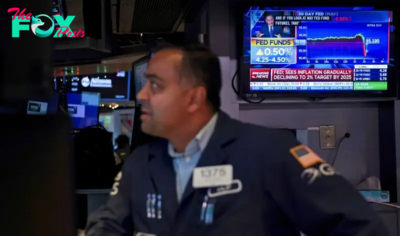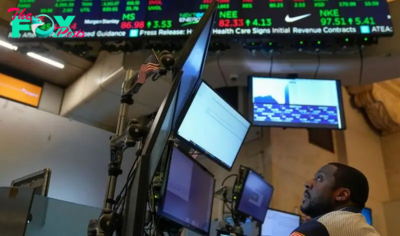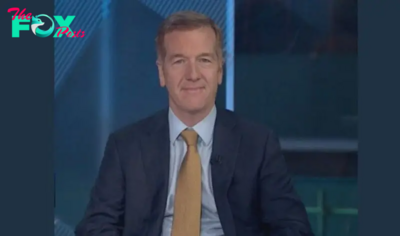Business
A Beginner's Guide to Trading CFDs on Forex
Have you ever wondered how to diversify your investment portfolio while gaining exposure to the foreign exchange markets? Contract for Differences (CFDs) on Forex offers a compelling avenue for investors. This method allows traders to engage in the currency markets without directly exchanging large sums of money, providing a practical approach to accessing global currencies.
This guide delivers a foundational understanding of Forex CFDs and their function. A forex trading broker can facilitate beginners looking to enter this dynamic market. Essential strategies are outlined to help novices navigate the complexities of currency exchange effectively. This preparation is vital for those venturing into Forex CFD trading for the first time.
What are Forex CFDs?
Forex CFDs are a type of derivative trading that enables speculation on global currency markets’ rising or falling prices. These contracts allow traders to engage in market movements without owning the underlying assets. Essentially, CFDs are agreements between an investor and a broker. They focus on exchanging the difference in the cost of a currency pair from when the contract is opened to when it is closed.
This method is beneficial for taking advantage of market trends. Investors can go long, speculating on prices moving up, or go short, betting on prices moving down. This flexibility is a crucial advantage of Forex CFD trading. It allows for potential profits in both rising and falling market conditions.
Benefits of Trading Forex CFDs
Trading CFDs on Forex comes with several unique advantages. Firstly, it allows for high leverage, meaning traders can control a prominent position with relatively little capital. However, it’s important to remember that while leverage can improve profits, it can also amplify losses. Secondly, it is marked by high liquidity and the ability to trade around the clock during weekdays, providing more opportunities to trade compared to other markets. Lastly, because you are not purchasing the currency, there are no ownership costs like stamp duty or account management fees, making it a cost-effective option.
The Mechanics of Forex CFD Trading
Understanding the mechanics of these trades is critical to success. Traders must familiarise themselves with several components:
- Spread: This is the variation between the buy and sell prices. CFD prices are recited in two prices: the buy (bid) and the sell (ask), and their difference is the spread. To break even on a trade, the position must move in your direction by an amount equivalent to the spread.
- Lot Size: It is traded in lots, which are currency units. In CFD trading, you decide the number of contracts (lots) you want to trade.
- Margin and Leverage: Trading on margin means trading with borrowed capital, which increases your buying power and risk.
Developing a Trading Strategy
As a beginner, developing a clear strategy is essential. Here are some steps to consider:
- Market Analysis: Use both technical and basic analysis to make informed decisions. Technical analysis involves studying charts and patterns to predict future movements. Fundamental analysis, however, looks at economic indicators like GDP, inflation, and policies that could affect currency values.
- Risk Management: Use stop-loss orders to limit possible losses. Decide the maximum percentage of your portfolio you are willing to risk on a single trade.
- Continuous Learning: The Forex market is constantly evolving. It is crucial to stay alongside market trends, news, and economic changes.
Benefits of Using Professional Services
Navigating Forex CFDs can be daunting for beginners due to the complexity and risks involved. Engaging professional brokerage services offers numerous benefits that can ease this challenge. Professional brokers provide access to advanced exchange platforms and real-time market data. These tools are crucial for making informed decisions and greatly enhance a trader’s ability to succeed in the market.
Additionally, many brokers offer Educational resources and expert advice. This guidance helps new traders understand the intricacies of market dynamics and refine their strategies. Such support is invaluable, especially for those new to the trading world. It aids significantly in making well-informed decisions that are critical to success.
Common Pitfalls to Avoid
New traders often fall into several common traps:
- Overleveraging: While using maximum leverage to increase potential profits is tempting, it can lead to significant losses.
- Emotional Trading: Decisions should be based on logical analysis, not emotional reactions. Stick to your exchange plan even during volatile times.
- Neglecting Stop-Loss Orders: Protecting your investment with stop-loss orders can prevent significant losses during unexpected market movements.
Trading CFDs on Forex offers exciting opportunities but requires careful planning and strategic execution. Engaging a forex trading broker can enhance your exchange experience, providing access to vital tools and market insights. With diligence and the right approach, this exchange’s potential can be unlocked, providing a valuable component to your investment strategy. Remember, the key to success in Forex CFD trading lies in continuous learning, risk management, and an unwavering commitment to your plan.
-

 Business43m ago
Business43m agoWhat are halal mortgages?
-

 Business43m ago
Business43m agoAmerica’s dairy farms are disappearing, down 95% since the 1970s − milk price rules are one reason why
-

 Business1d ago
Business1d agoThe Hidden Costs of the EV Retreat
-

 Business1d ago
Business1d agoPlanning a Dream Wedding at Occidental Tucancún Resort: What to Expect
-

 Business1d ago
Business1d agoCustomers Question New Kohl’s Checkout in Wappingers
-

 Business2d ago
Business2d agoIs Friday the 13th Your Chance for Luck? Enter ActionCOACH’s £1 Million Prize Draw Now
-

 Business3d ago
Business3d agoArif Efendi: How to Launch a Start-Up Business
-

 Business3d ago
Business3d agoHalifax Intermediaries: Comprehensive Mortgage Solutions and Support



























